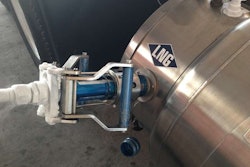There are regulations for minimum requirements for hiring new drivers, and it’s important to make sure legislated requirements are met, but the Federal Motor Carrier Safety Administration (FMCSA)’s Pre-Employment Screening Program (PSP) is a great add-on to even stellar hiring processes and should be considered a trucking industry best practice for hiring drivers.
Pulling PSP reports is an affordable way to go above and beyond what is required for safety, and while it may seem like enough of a challenge to simply keep up with the minimum requirements for compliance, I try my best to go the extra mile when possible to keep our safety record in good condition.
The PSP was developed in response to a mandate from Congress to construct a system that provides electronic access to safety information for commercial drivers. The 24-hour PSP allows for access to a driver’s past five years of eligible crashes and past three years of roadside inspection data. This information does not come from state-specific databases, but rather from the FMCSA’s Motor Carrier Management Information System (MCMIS). As of this writing it costs $10 per report to use the system.
A state can provide information concerning a driver’s past driving behavior, and the MCMIS data in the PSP report supplements this information. It is not a redundant safety measure. Any motor carrier can enroll in the PSP and pull a PSP report on a potential new hire after obtaining specific written consent from the driver, which may only be done as part of the pre-screening process during hiring. Drivers may request their own PSP report separately from a motor carrier at any time they choose.
My PSP experiences
First, I found technical support via phone to be excellent and comprehensive. While the details needed for enrollment and administration are available online, I like to talk to someone when possible. I was pleasantly surprised at how easy it was to get a hold of PSP representatives, and they made setup a simple process.
Using the PSP is optional, but if you choose to add it to your pre-screening process there are specific rules for maintaining records. After all, these reports contain private information about drivers and need to be treated with the same respect as other parts of the driver’s file. I keep special files just for my PSP-related documents so that I am prepared for a potential audit from the FMCSA.
Has using PSP reports helped me learn about potential new hires? Yes. Being a safety professional for a Canadian carrier, I require the provincial driver’s abstract (the Canadian version of an MVR) for new hires. A problem with using such a document to verify past experience and potential problems is that data transfer between the USA and Canada is not perfect, so a Canadian abstract will not necessarily show all relevant safety information for someone who has U.S. driving experience. I have had a new driver with a clean Canadian abstract with out of service violations on their PSP report.
U.S. carriers can reap similar benefits from PSP reports. Remember, PSP information does not come from a state database, but comes from a Federal source. Not pulling a PSP report means that information may be missing from the picture you have of your new hire.
Is the PSP worth it?
I can answer this question with a resounding “yes.” I’m glad that I made PSP reports a standard part of our hiring, and do not consider the $10 fee per report to be a suitable excuse for not taking advantage of the program.
What I like the most about the PSP is that it gives me another opportunity – on top of abstracts and previous employer safety checks – to get to know a new driver’s driving behavior. I like to review a new hire’s abstract and PSP report with them, and I ask questions about any violations.
I’m not doing this from a place of mistrust. I simply want to have a good an understanding of a new hire’s professionalism from the beginning. Plus, a PSP report showing lots of violation-free inspections allows me to compliment a driver on their great past performance at the scales.
Even if I am hiring a Canadian driver that says they have never driven commercially in the U.S., I still pull their PSP report. If they have any information on their report, then I have reason to question their previous experience. Additionally, if something should go to litigation, PSP reports are another way a carrier can demonstrate its due diligence.
I strongly recommend taking part in the PSP. It is a great way to get a little (or possibly a lot) more information about your new drivers, and really is low-hanging fruit in the world of fleet safety management. The FMCSA has put tremendous effort into gathering data about commercial drivers and we might as well benefit from it.
Dave Elniski is a trucking/transportation safety professional.










